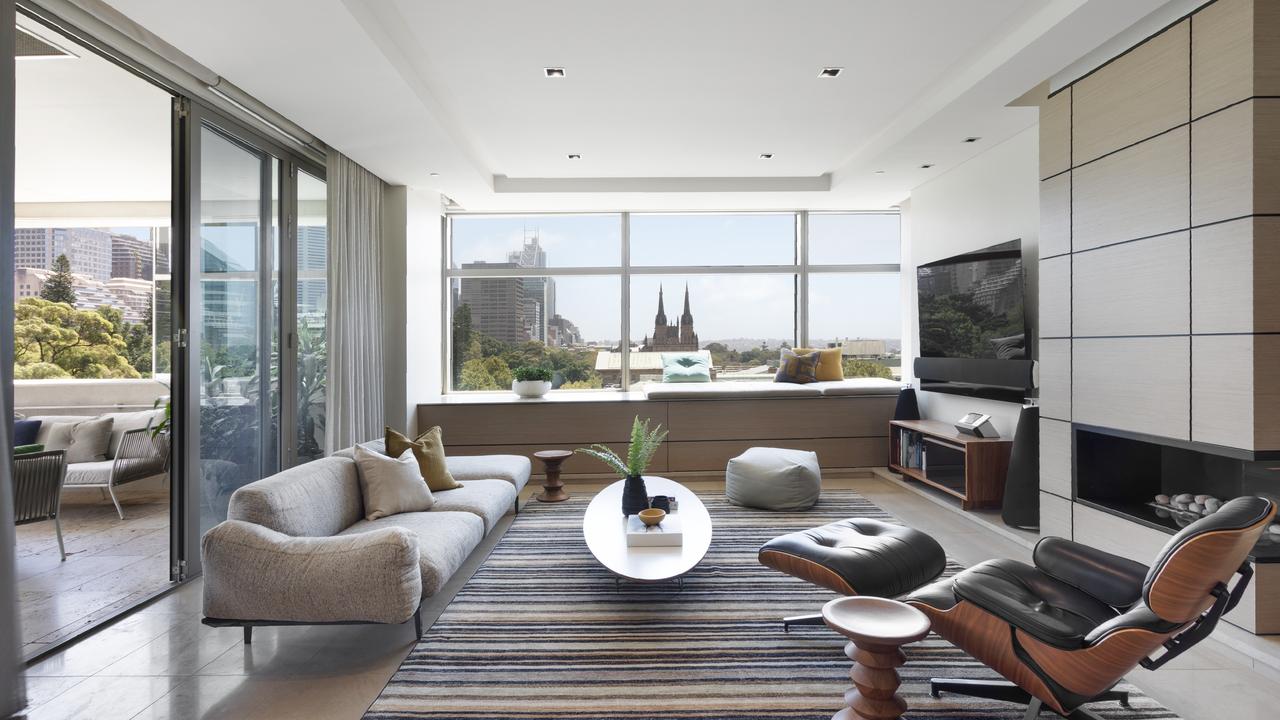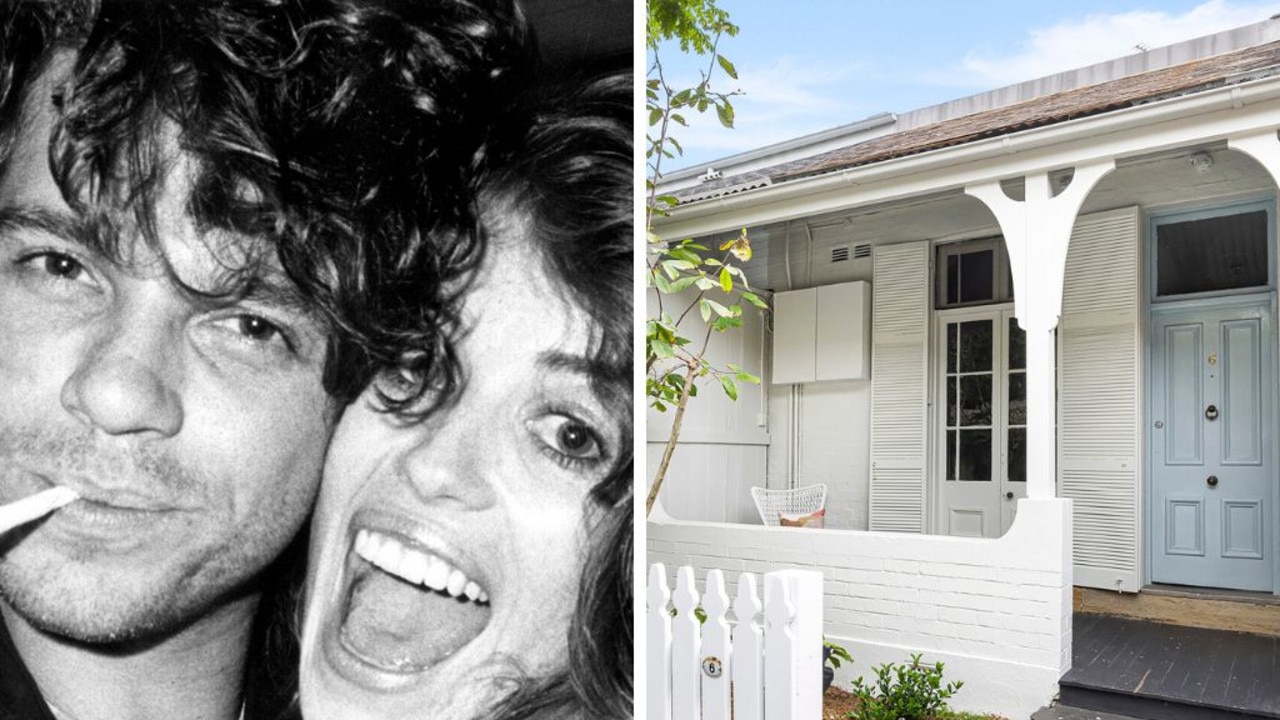‘I didn’t get cappuccinos’: Boomer hits back at filmmaker’s ‘buying a house in 1983’ viral video
Boomers have hit back at a viral video about the housing crisis, with one saying she was able to buy a house because she “didn’t get cappuccinos”.
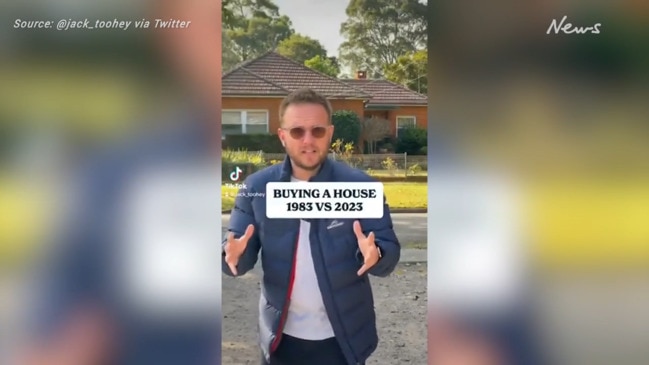
Talkback radio callers have demanded an end to “boomer bashing” in the debate over home ownership, with one woman saying she was able to buy a house because she “scrimped and scraped” and “didn’t get cappuccinos”.
Aussie filmmaker Jack Toohey went viral earlier this week with a video highlighting the differences between buying a house in 1983 and 2023, concluding that the market was “broken” and the Australian dream “far out of reach” for most.
Toohey spoke to Melbourne’s 3AW radio station on Wednesday, with several boomers calling in during the segment to air their grievances.
“Why is it that us boomers get picked on?” caller Joe said.
“Because we didn’t do holidays until we were older, we didn’t have anything in our homes when we first got married, and yeah we’ve got a dollar now and the government and everybody else is having a go at us, about, oh we’ve got lots of money, we don’t need it.”
3AW host Elise Elliott added that “another point is houses back in the day were smaller, one bathroom, they were pretty modest”.
“People now want these palatial homes with multiple bathrooms, multiple garages, rumpus rooms, entertainment rooms as well. So I think people were a bit more modest in their great Australian dream,” she said.
Next up was caller Grace. “I’m a boomer and I agree, stop boomer bashing,” she said.
“I was a single parent and my mortgage was 18 per cent. I didn’t go out when my friends were socialising, I didn’t get cappuccinos, I didn’t go out for breakfast, I scrimped and scraped and I worked hard, and that’s the only way you can do it. I mean, I know they disagree and say, oh we have to have a life as well now, but if you want to save the money and get a deposit then you need to cut back on these things.”
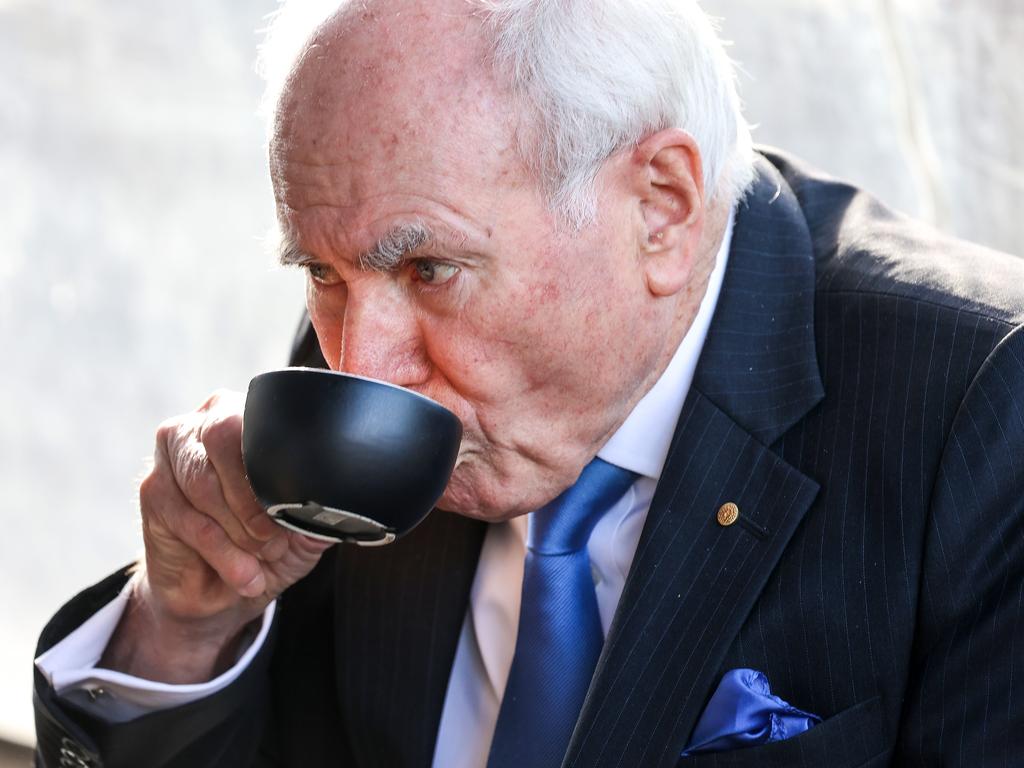
Australia experienced periods of very high interest rates in the 1980s and 1990s relative to the past decade — famously peaking at 17.5 per cent in 1990 — a fact often raised by older generations.
But the era of ultra-low rates is now well and truly over, with the Reserve Bank on Tuesday delivering its 12th rate hike since May last year, raising the official cash rate by another 25 basis points to 4.1 per cent — its highest level since 2012.
Grace continued, “I didn’t have a 70-inch TV, you know, you’ve got to stop wanting the best of everything, going on holidays … if you really want to save up for a deposit, you can do it, you just have to stop spending on all these extra things. It’s just the way we were brought up I suppose, in our generation, that we didn’t waste money that we didn’t have, you don’t put things on credit.”
But Toohey said he didn’t think it was fair to say millennials spent too much money.
“Right now most of us are renters, we’re contributing most of the time to someone else’s mortgage,” he said.
“For a lot of us we’re really struggling right now, and we have devices like iPhones or we’ve been on holidays, but the cost of travel, the cost of technology is exponentially getting cheaper every year, so you can’t really do a price comparison on what an overseas trip is today compared to 40 years ago, because that’s a 10-fold decrease. I don’t think it’s a like-for-like analysis.”
Caller Gary then pointed out that there was less support in general in his day.
“When we had our children, not only was there no subsidised childcare, there was no childcare anywhere,” he said.
“We had to manage, my wife used to start work at 6 o’clock, we just had to manage. The child endowment, as it was called then, was $3 a fortnight, and it grew to $17 when we had our second.”
Comedian Tony Martin took to Twitter after the segment to mock the “cartoonish” boomers’ line of reasoning.
Cartoonish boomer on 3AW talkback saying that millennials could afford a house if they'd simply stop spending all their money on 'cappuccinos and 70-inch TVs'.
— Tony Martin (@mrtonymartin) June 7, 2023
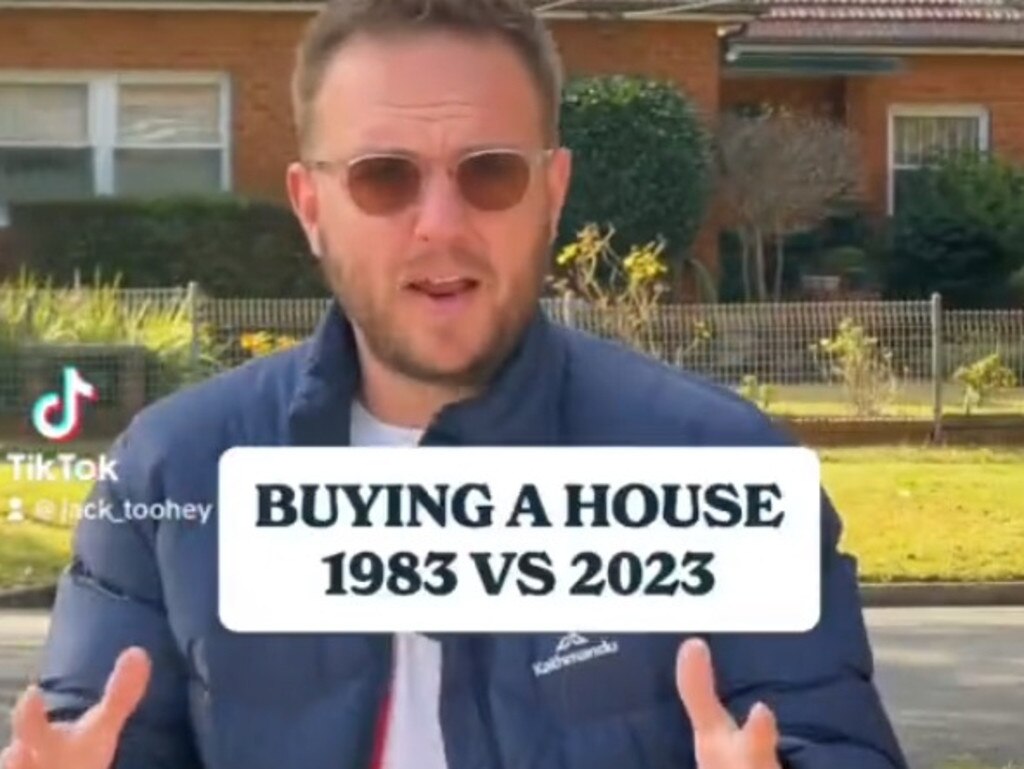
In his video, Toohey pointed out the chasm between income growth and house prices over the past four decades.
“It’s clear that it’s not just lazy, layabout young people sipping lattes that’s causing the problem,” he said.
“In 40 years the average house price has increased by 14 times, whereas full-time salaries have only increased by 4.7 times. Houses used to cost three times your salary, and now they cost 10 times.”
In other words, a person today would have to be making $300,000 a year to be in the same starting position as a homebuyer 40 years ago.
Sydney and Melbourne, where the median house price is now well over $1 million, consistently rank among the most unaffordable cities in the world, alongside the likes of Hong Kong, Vancouver and San Jose.
Last week, NSW’s Productivity Commissioner warned that the dream of owning a home was now “out of reach” for many young people, and called for planning reforms to create more high-rise apartments in rich suburbs close to the CBD to increase supply.
“Since 1992, NSW has built six dwellings per 1000 residents on average, fewer than Queensland and Victoria (about eight to nine dwellings per 1000 residents),” Peter Achterstraat said in a report.
“A rule of thumb is that in Australia, a 10 per cent increase in supply leads to a 25 per cent reduction in housing costs. So, Sydney needs to use every tactic it can find to get more homes built.”
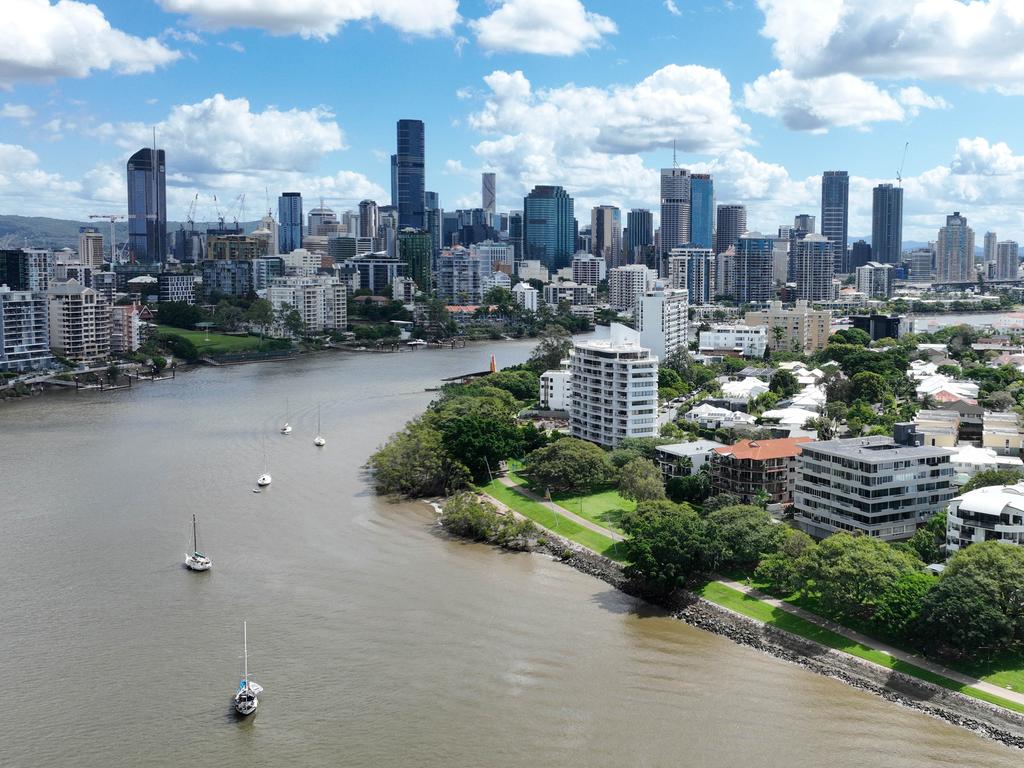
Economist Leith van Onselen, co-founder of MacroBusiness, said the Productivity Commission had not addressed the elephant in the room.
“Under the Albanese government’s ‘Big Australia’ immigration policy, NSW’s population is officially projected to grow by a record high 578,000 people in the five years to 2026-27, most of whom will land in Sydney,” he said.
“That is the equivalent to adding a Tasmania-worth of people to NSW in only five years, but without the requisite infrastructure and housing to match.”
He said if the NSW Productivity Commission “genuinely wanted to end the state’s housing shortage, it would urge the federal government to run an immigration program that is significantly lower than the growth of the overall dwelling stock, not the other way around”.
“It is time to stop scapegoating a ‘lack of supply’ and speak honestly about the issue,” he said. “The nation’s housing problem is really an excessive immigration problem.”
On Thursday, a new report from PropTrack predicted house prices could surge again to a new peak by January.
“Housing demand is stronger, likely bolstered by the surge in net overseas migration, as well as very tight rental markets,” said PropTrack senior economist Eleanor Creagh.
“Given limited new stock is coming to market, buyer interest is being concentrated, which is underpinning home prices and offsetting the downward pressure from interest rate rises. If the pace of price growth recorded over the past quarter continues, national property prices will surpass their prior peak by January 2024.”





